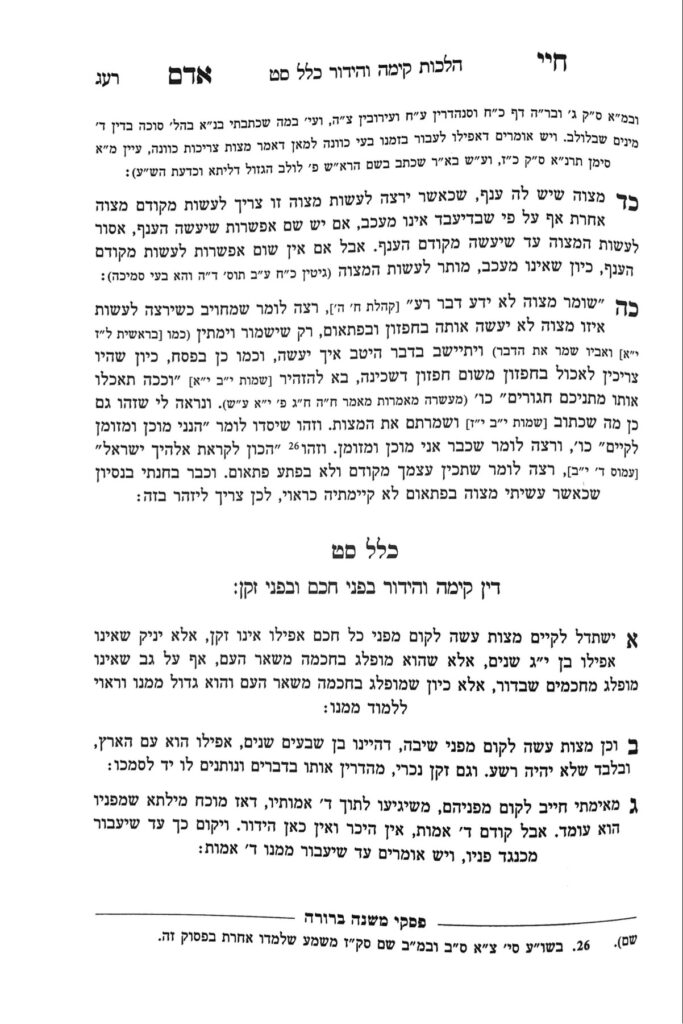We are beginning siman 25. The pasuk in Koheles (8:5) says, shomeir mitzvah lo yeida davar ra, one who guards mitzvos will not know of bad. We see the concept of shmira in many places, such as regarding Shabbos and matzah. Generally, it means that one should be careful to ensure that the mitzvah is completed, or completed properly.
The Chayei Adam gives a novel understanding to the concept of shmira. He explains that one should plan and anticipate mitzvos rather than fall into a mitzvah suddenly. The word shemira can refer to anticipating or waiting for something, as we see regarding Yosef and Yaakov. After Yosef tells Yaakov and the brothers about his dreams, the pasuk says that Yaakov shamar es hadavar. Rashi explains that shamar refers to the fact that Yaakov was awaiting to see the fulfillment of the dreams. Thus, being shomeir a mitzvah means to anticipate and plan the performance of mitzvos. During this anticipating period, a person should plan and prepare mentally and practically for the mitzvah.
The Torah says that the korban pesach should be eaten with chipazon. Chipazon can be translated as unsettled and rushed. However, the Torah says to eat the korban pesach well dressed and prepared, because the chipazon regarding korban pesach is not haphazard speed but rather the alacrity to perform it properly. Similarly, the Chayei Adam suggests that the pasuk of ushmartem es hamatzos comes as the balance to the chipazon engendered on seder night. By preparing beforehand, one will go into the chipazon with alacrity to perform the mitzvah properly rather than in a rush.
The Chayei Adam extends this idea another step further, using it to explain the hineni muchan u’mezuman that many recite before performing a mitzvah. In the context of this idea, he explains that when a person recites the hineni muchan, they are describing themselves as being in a state of preparedness to be able to do a mitzvah. According to the Chayei Adam, the declaration is not the vehicle for the preparation, but rather, one has to give thought to the mitzvah before reciting the hineni muchan, in order to be truly ready when reciting it and not make a false declaration.
To make a broad analogy, when a person has a significant event in life, such as a wedding, there are many weeks of preparation beforehand. There is forethought; we do not just do it. Similarly, if a person is going into a race, they do not just gear up their body, but their mind as well. The same is true about a mitzvah.
The Noda B’yehuda points out that the language of the hineni muchan existed before the kabbalistic names were inserted into it. He holds that one should say the old version, and stresses that the point of it is the preparedness beforehand before performing a mitzvah.
We will discuss the purpose of the kabbalistic intentions in the next shiur, be’ezras Hashem.
Summary
One should be shomeir mitzvos by planning and anticipating mitzvos rather than falling into them suddenly.



